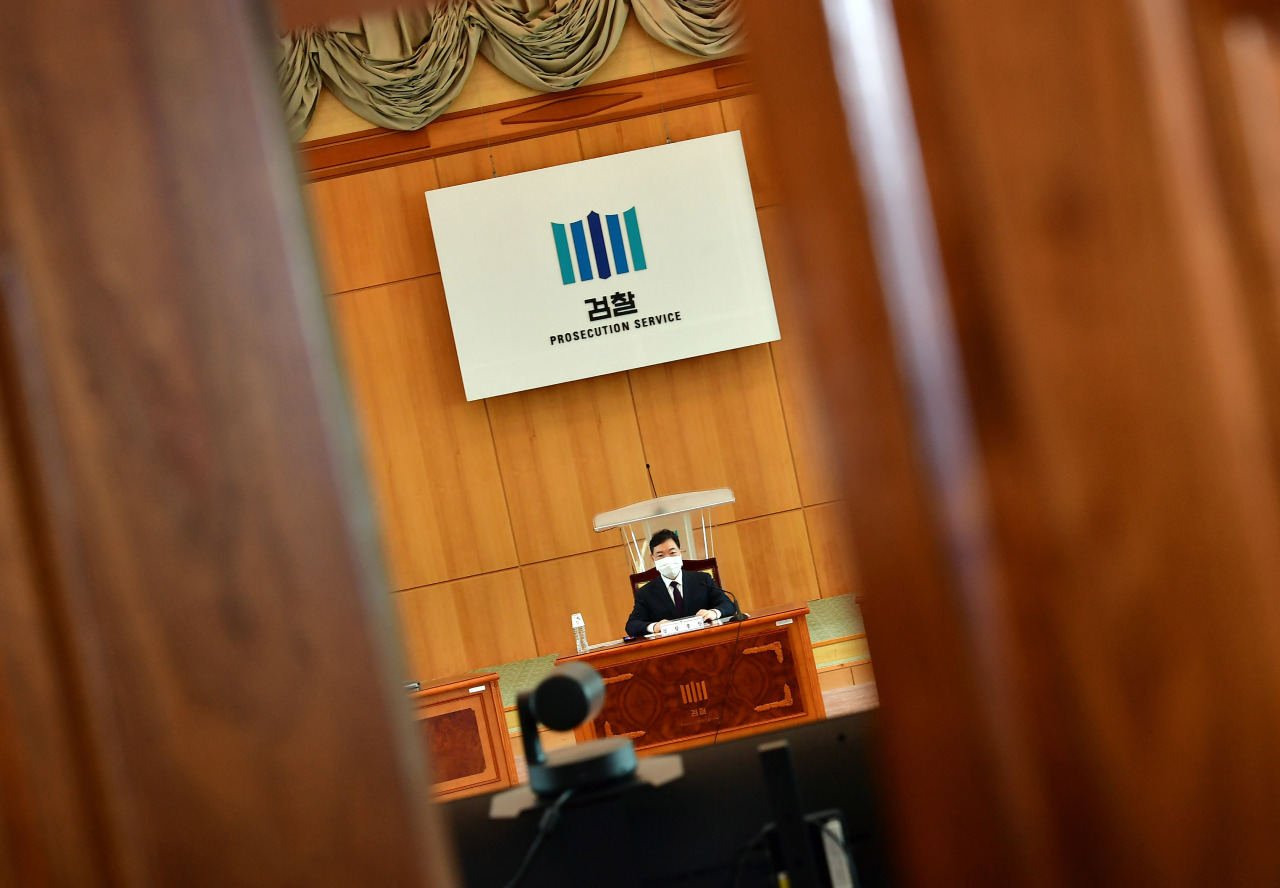‘Bill to benefit criminals’: Legal experts slam Democratic Party of Korea’s prosecution reform push
As end of party’s rule draws near, rush to eliminate prosecutorial investigations
By Kim ArinPublished : April 12, 2022 - 18:03

Top legal scholars and societies have hit back at the ruling Democratic Party of Korea’s push to strip the prosecution completely of its investigative powers, warning the move will end up benefiting criminals and hurting victims.
Last week the Democratic Party leadership said the party would legislate the prosecution reform bill before the end of Moon Jae-in administration in early May. During a session Tuesday, the party agreed on reform of the prosecution -- “complete forfeiture of the prosecution’s investigative capabilities” -- and the press as part of its party platform, to be passed within this month.
In a statement Tuesday, the Korean Bar Association, which represents all licensed attorneys in the country, said it “clearly opposes” the party’s bill proposal.
“For more than half a century, the prosecution served as a pillar of the country’s criminal judicature,” it said. “Excluding the prosecution from criminal investigations altogether is not something that should be rushed as one administration exits and a new one takes over.”
The association said as the reform bill passed in January last year, handing over the prosecution’s duty to police, criminal investigations were suffering delays.
The association’s December survey showed 84 percent of its members replying that the police investigation stage of criminal cases was “not being processed in time” after the bill took effect. Some 67 percent said they found the delays to be “serious” and “disruptive” in the completion of a case.
The criminal cases were being delayed or dropped at the police level, while police, assuming the role of the prosecution in criminal investigations, were given more powers, the association said.
“It’s questionable if the push for reform is in the interest of the public. Instead it’s become harder for victims of crimes to seek justice.”
Minbyun, or Lawyers for a Democratic Society, said in a statement on the same day that by removing the prosecution from the investigative front lines, it would be victims in criminal proceedings who are “bound to suffer.”
The progressive lawyers’ society said the Democratic Party has so far failed to propose “an alternative to fill the investigative void that will inevitably arise as the prosecution loses the authority to investigate.”
Although the party said there would be a new office to replace the prosecution’s investigative functions, the society said it was “unclear whether establishing yet another investigation office is justified.” The Corruption Investigation Office for High-ranking Officials was set up only in January last year, also with the aim of clipping the powers of the prosecution.
The launch of the Corruption Investigation Office for High-ranking Officials, whose role is in its name, was a key part of President Moon Jae-in’s policy agenda.
By taking away the prosecution’s ability to investigate high-ranking officials, the corruption investigation office would keep the “powerful” prosecution in check, Moon has said. Former presidents from both sides of the aisle and their aides have been indicted or even jailed at the end of investigations led by the prosecution.
Over the last year the investigation office has been able to indict just one case. The office is facing accusations of tracking communication records of opposition lawmakers and reporters for conservative outlets who are not suspected of any wrongdoing.
In a forum organized by the Korea Criminal Procedure Law Society on Monday, Kim Young-ki, an attorney at law firm Hwawoo, warned that “ultimately only criminals would benefit from the prosecution reform bill.” The Democratic Party’s reform bill would result in the “reduction of the amount of criminal investigations being undertaken, rather than of crimes,” he said.
Democratic Party Rep. Hwang Un-hwa, a high-ranking police officer-turned-lawmaker, admitted that with the passage of the bill, a wide range of criminal investigations currently overseen by the prosecution will “disappear,” according to a confidential letter leaked to media outlets on Friday.
Speaking at the same forum, Kim Ye-won, an attorney at the Disability Rights Advocacy Center, said before the prosecution’s investigative jurisdiction was transferred to police, there was a “second chance” for people.
“Before the bill, if crimes were not detected at the police level, or police officers in charge of the investigation failed to comprehend the full extent of legal concepts, that was OK. There was a second chance. All cases were sent to be reviewed by the prosecutors, who would supplement what was lacking in the investigations,” she explained.
But now cases were terminated by police after an inadequate investigation, or put on hold for months without the investigation ever launching. This was unprecedented, she said.
She said the proponents of the bill were “using the criminal justice system for political purposes.”
“People who benefit most from this bill are criminals. The bill would hurt all of us, but especially people who don’t have access to legal services and to pay for big firm lawyers.”
Park Joon-young, an attorney who is known for defending people wrongly convicted in retrials, criticized the reform bill as “politicizing” the criminal justice system in a Facebook statement Monday.
“I question the motives of politicians who back this bill. I urge them to ask themselves if their motive for pushing this reform agenda is due to their fear of the prosecution’s investigations revealing their wrongdoings, or to further their political goals,” he said.
“Criminal justice should not be subject to political calculations.”
By Kim Arin (arin@heraldcorp.com)

















![[KH Explains] Hyundai's full hybrid edge to pay off amid slow transition to pure EVs](http://res.heraldm.com/phpwas/restmb_idxmake.php?idx=652&simg=/content/image/2024/04/18/20240418050645_0.jpg&u=20240418181020)

![[Today’s K-pop] Zico drops snippet of collaboration with Jennie](http://res.heraldm.com/phpwas/restmb_idxmake.php?idx=642&simg=/content/image/2024/04/18/20240418050702_0.jpg&u=)